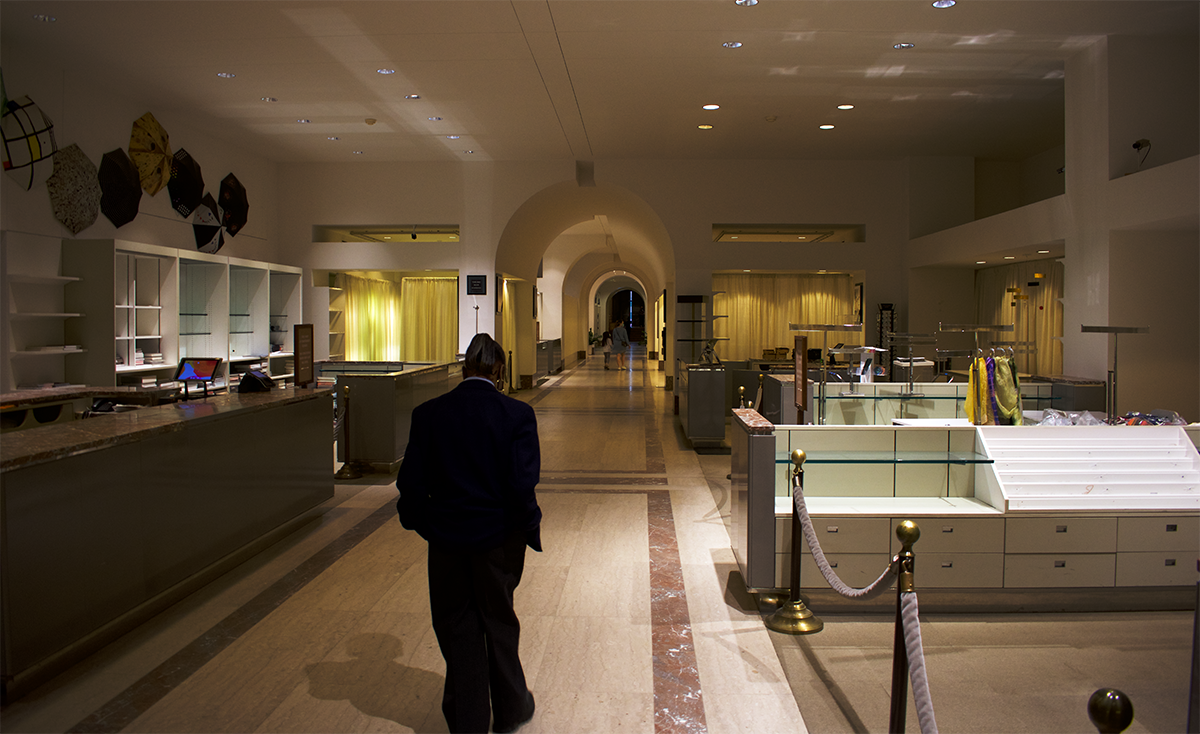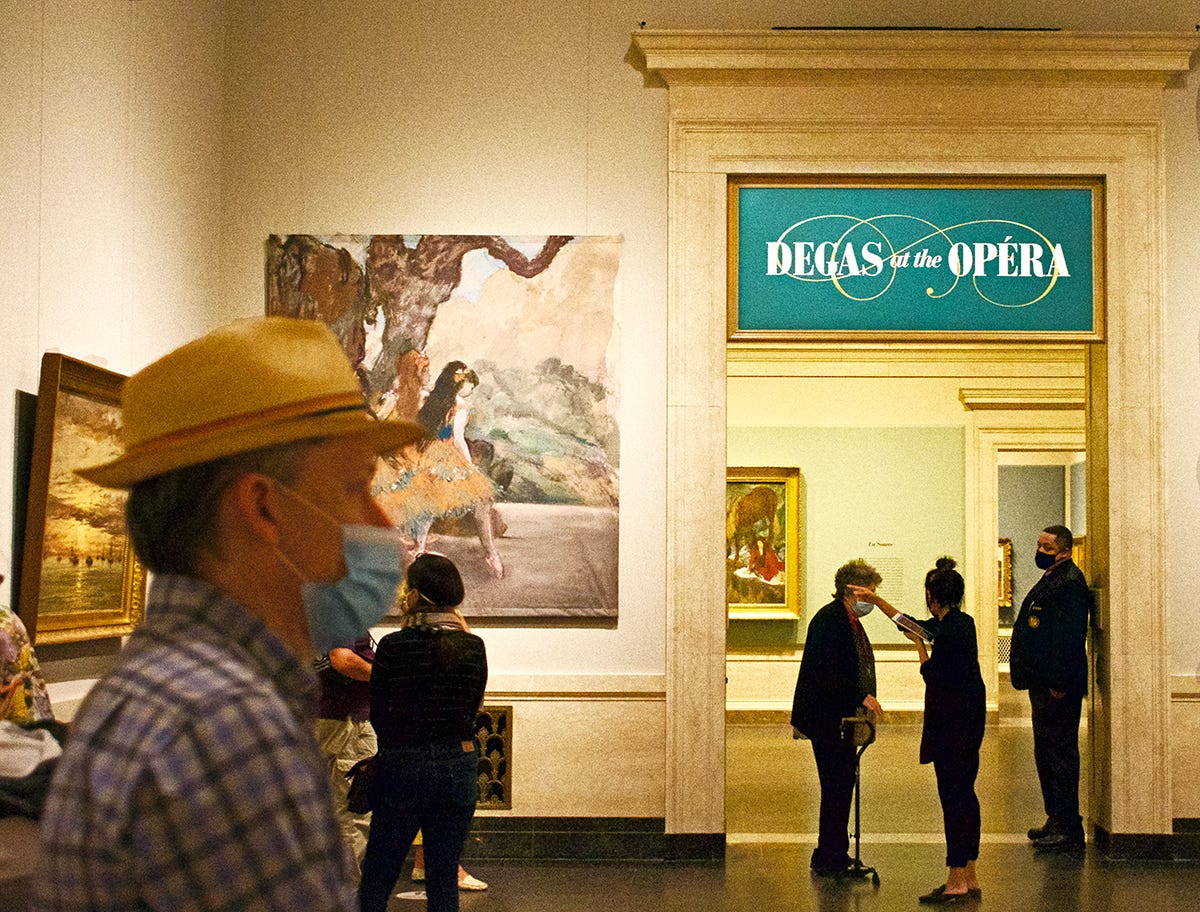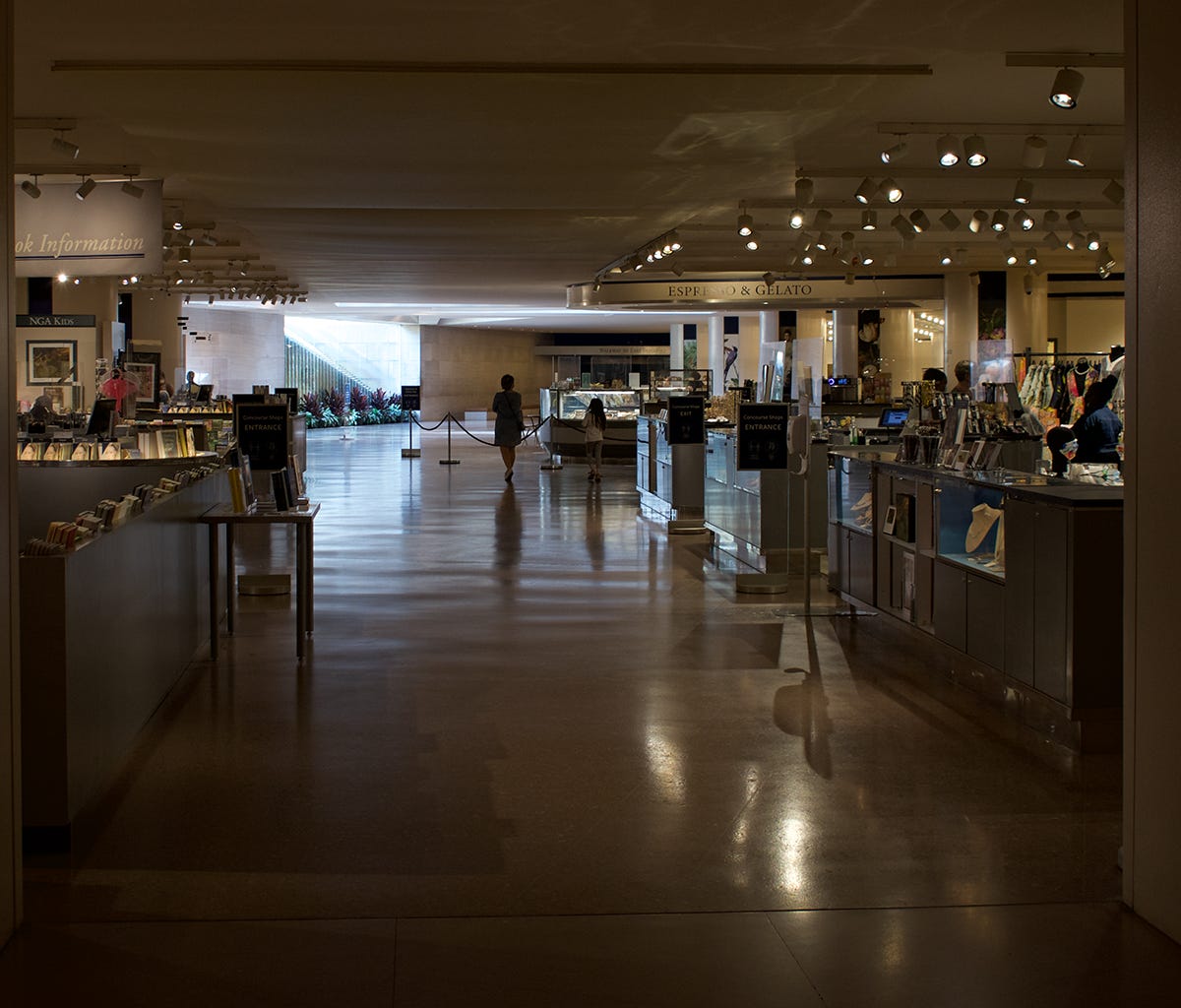I dropped by the National Gallery of Art the other day. For months I’d been mooning over the loss of it during the pandemic; it had been my solace and redoubt for years. Then without my noticing they reopened in July. That’s how much I’d tuned out even the possibility of relief. I hadn’t wanted to get into the habit of checking for a reopening, because for me deprivation is easier to bear without the constant nattering annoyance of hope.
The reopening is only on a limited basis, and the limitations are strict. For one thing they require timed-entry passes, which strips away the “Hey, let's go to the museum” spontaneity I’ve been missing, just like I’ve been missing “Hey, let’s go get Chinese” and “hey, let’s shop for new shoes” and all those other joyful low-board cannonball-dives. I think this is the sort of thing that affects anti-social people who nonetheless like crowds more than it does genuine philanthropes; if you like to stand among them but not of them, it helps to be able to slip in and out of their company unnoticed.
Even worse, NGA has only been able to open part of its ground floor. That means nearly all of its permanent collection of paintings and large sculptures are out of view. The museum shop on the main floor is closed, and makes a melancholy empty-shelved pass-through. Of the dining areas only the coffee bar is open. Also the parts of the floor that are accessible have become a little more maze-like, blocked by baffles and security guards, to maintain social-distancing conventions, and that depressed me, too; to be herded, even gently, around the small part of the place I was allowed to visit turned it from home ground to occupied territory.
At this stage I can’t laugh it off like I used to. I remember when the Life Cafe on Avenue B was a relatively raw place — nice, you know, the wood was lathed and sanded and on its way to being varnished — where we could bring our lowlife friends and our lowlife selves and our drinks, if we were just a little careful about that, and howl and laugh without spending money; then one day I walked in and my friends were on one side of a brand new velvet rope, and a bar full of people with money to spend was on the other. Some months later I came back with money to spend, and the rope wasn’t there and neither were some of my friends, but some of them were and we went on as if nothing had happened. Which is easier to do when there’s a crowd. In a crowd you can laugh it off.

Last weekend I watched some football on TV. Haven’t been much of a fan since my Joe Namath childhood, but I was hungry for some kind of ordinary-life ritual, the kind of thing that would gently stroke my stupid antique vicarious masculinity, and that I could share or feel like I was sharing with millions of other like-mindless men across the country. But I kept getting distracted. I noticed the crowds for college games were more socially-distanced for the small schools (like North Texas vs. Southern Mississippi) than they were for the big ones. At Georgia vs. Auburn, the crowds seemed a little spindly at first but got thicker until by the end of the first quarter they was almost at pre-COVID density. But it still wasn’t normal or fun — it was more like the crowds were playing chicken with the virus rather than watching a football game.

Hell, even NASCAR isn’t fun. You’d think it had no need for an attentive crowd. But look: no humans visible on the ground, no humans in the stands; pit crews like bedraggled survivors of an unexpected apocalypse. I imagined Elon Musk doing away with drivers entirely; a car crashed, robot track-scows shoved it off the field and another land-drone takes its place, algorithmically pitting its weight and torque against the others.
TV sports have over the years increasingly come to resemble video games with their endless streams of stats and sidebars resembling the dashboards of consoles. Now the lockdown is taking away one more connection we had with human athletes: That we also got up and moved around and engaged physically with the world, however modestly. People used to say that, as athletes became hypertrained steroid supermen, our ability to relate to them would become increasingly vicarious; but under COVID our viewing of games is starting to progress from vicarious to nostalgic. Soon we will have the same relationship with the physical universe that pixels have with us.
Or so the sweaty dreams tell us, and then we wake and shake them off, and go to the window and look out at the bright cold sun on the empty streets.





“Or so the sweaty dreams tell us, and then we wake and shake them off, and go to the window and look out at the bright cold sun on the empty streets.“
Dat’s pure poet-ree right dere! (But seriously, that’s a really fine sentence!)
“constant nattering annoyance of hope“ [breaks down into hysterics of loss]